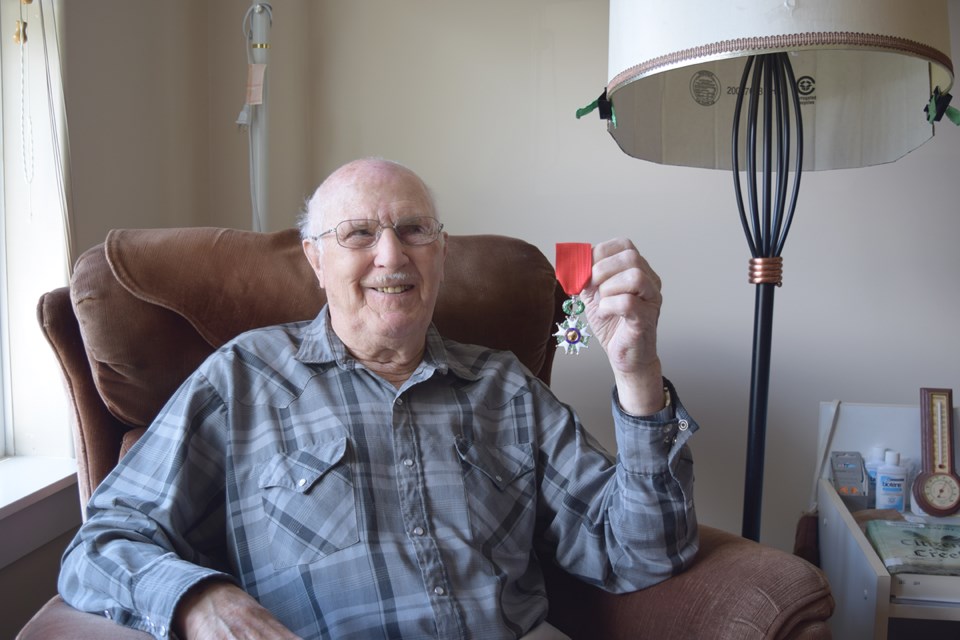In the heat of battle, there is no time to be scared, says Second World War veteran Edward Gregoire.
The 97-year-old Squamish resident was part of the initial D-Day assault with the Royal Winnipeg Rifles platoon when they landed on Juno Beach in Normandy on June 6, 1944.
“You do it without thinking,” Gregoire said of storming the beach as a young soldier. “You jump into the water and walk in facing the guns. You don’t think about anything else but saving your life when the bullets are passing your face like that. You are not thinking of anything else.”
For his contribution to the war effort, Gregoire received the rank of Knight of the French National Order of the Legion of Honour in an official ceremony in Squamish on Sunday.
“It is awarded in recognition of your personal involvement in the liberation of our country during the Second World War,” reads a letter to Gregoire from Nicolas Chapuis, the French ambassador to Canada. The Legion of Honour is the highest national order of France for military and civil merits.
Gregoire was nominated by Squamish Legion member Ken Ward and Robert Geddes, vice-president of the Royal Winnipeg Rifles.
At Juno Beach, Gregoire’s military unit secured a German position and took three Germans as prisoners of war, but Germans captured Gregoire two days later, he said. He remained a prisoner of war for almost a year until a few days before V-E Day in May of 1945.
His memory has faded, he says, but a few images from that time still come flooding back. “They marched us from where we were captured over across France for four or five days,” Gregoire recalled as he sat in his easy chair at Shannon Falls Retirement Residence in downtown Squamish last week.
Gregoire and the other prisoners were marched to an area close to where he was born near Rennes, France, he said.
“When you are doing that… you are thinking about staying alive and eating,” he said of the marching. The prisoners were kept in a horse barn until August, Gregoire said, and then they were loaded onto boxcars as the Americans approached.
After what seemed like a few weeks, Gregoire said the prisoners arrived in Germany. He was registered as a POW in prison camp Stalag 12A, one of Germany’s largest prisoner of war camps in Limburg. Weeks later, he was moved to prison camp Stalag 4B, northeast of the town of Mühlberg.
Some of the prisoners, including Gregoire, were worked through the winter in a nearby brick factory.
He recalls not being able to bathe all summer and when he did finally have a bath in the fall, it was in cold water with a scrub brush. It was tough, but others had it much worse, he said.
“Can you imagine all the guys who went through much worse than we did?” he asked. “And they are not here to talk about it.”




